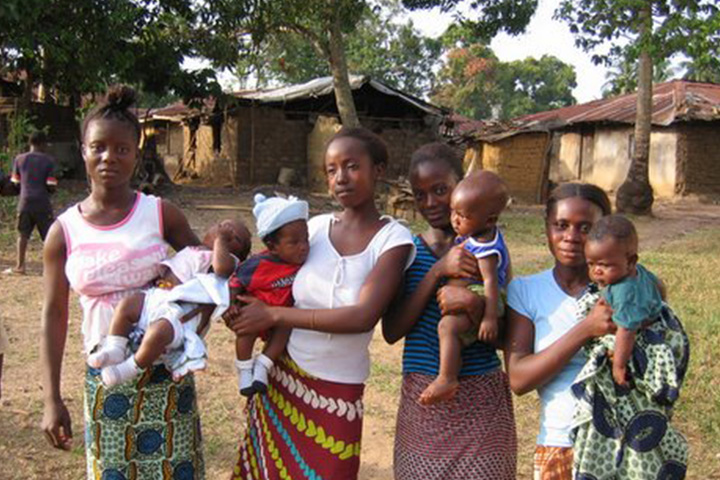Palm Weevils Could Nourish Expectant Mothers, Provide Revenue to Health Care Facilities
Palm Weevils Could Nourish Expectant Mothers, Provide Revenue to Health Care Facilities
Palm Weevils Could Nourish Expectant Mothers, Provide Revenue to Health Care Facilities
Program: Catalyst Grants
Program details » | All Catalyst Grants projects »

Photo credit: Jody Lori
Project Team
- Jody Lori - U-M School of Nursing (PI)
- Cheryl Moyer - U-M School of Medicine (Co-I)
- Jacob Anakware - AnePaare Farms founder and CEO
- Alphonso Kofa - Bong County Health Team director
- Barsee Zogbaye - Bong County Health Team
- Aloysium Nyanplu - Bong County Health Team
Project Summary
Liberian women in the late stages of pregnancy can stay at maternity waiting in their houses waiting (MWHs) to receive skilled obstetric care through childbirth, but many choose not to use this service because of a lack of access to food. Partnering with Ghana-based AnePaare Farms and the Bong County Health Team, this team will bring a low-carbon, sustainable food source to six of Liberia’s 114 MWHs by cultivating edible insects (Liberian African palm weevil larvae) on site.
This intervention was a unique public/private partnership between the University of Michigan (UM), Ghana-based AnePaare Farms, and the Bong County Health Team. The goals of the intervention were to: 1) develop local knowledge for the start-up, maintenance, and processing of edible insects through a training program; 2) document successful larvae production from project evaluation participants’ rearing kits after two complete cycles; 3) evaluate whether income generation through insect farming will generate a sustainable source of revenue at rural MWHs.
The insects provided sustainable, protein-rich nutrition for pregnant women at MWHs, and their cultivation could serve as an income-generating activity for the facilities (provided the bugs can be commercially harvested). The team hopes to extend the project to all of Liberia’s MWHs.
For more details, read the final project report (PDF).
This project received a $10,000 Catalyst Grant in 2020.